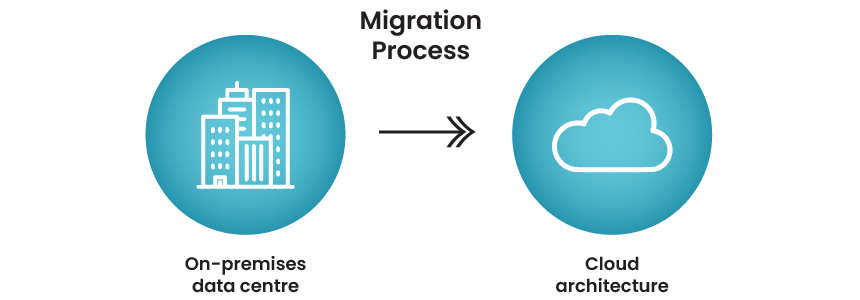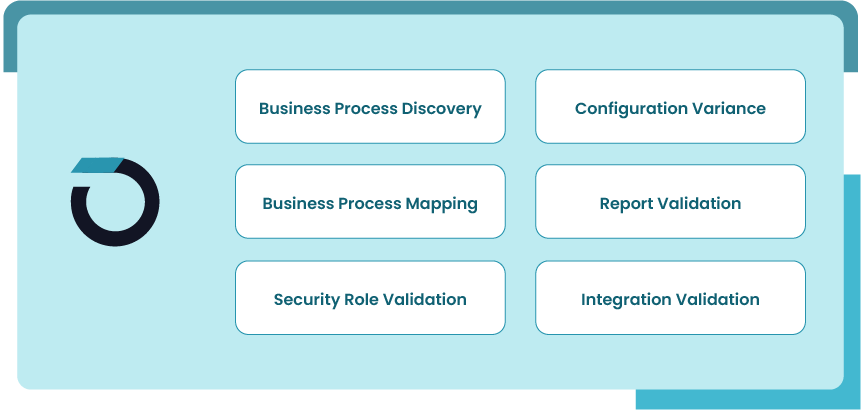Migration to Oracle Cloud offers significant benefits for current Oracle EBS users. Customers have their eye on the increased scalability, flexibility, and continuous innovation offered by the Cloud. Migrating to Cloud also means transitioning the burden of maintenance and upgrades to Oracle.
Oracle Cloud migrations come with additional capabilities that ensure efficiencies, cost savings, and opportunities for new revenue generation. However, migration to Oracle Cloud isn’t a walk in the park.
If done incorrectly, Oracle Cloud migrations can cause application downtime, as well as a slew of other headaches. To ensure that your applications remain stable, functional, and secure in your new Oracle Cloud environment, you need a robust testing strategy.
Proper testing ensures that data flows stay constant, backend processes continue to work as intended, and compliance and security requirements remain in place. In other words, a robust testing strategy helps guarantee that your migration from on-premises environments (EBS) to the cloud will be smooth and successful.
Get a Free Migration Assessment Today!
In this blog, we’ll highlight major complications that organizations may face during Oracle Cloud migration. We'll also shed light on what you should consider while designing your Cloud migration strategy. We'll also highlight how Opkey as a test automation platform can support your Oracle Cloud migrations.

Oracle Cloud Migrations - What Are Your Options
Oracle EBS customers have following migrations options:

Migration to Oracle Cloud Infrastructure (OCI)
Migration to Oracle Cloud Infrastructure is also known as Re-hosting or Lift and Shift. Here, you can continue using the same EBS applications in the oracle Cloud infrastructure, with little to no disruptions.
Since you’re using existing applications, no training or adoption costs for business users is required. While migrating to Oracle Cloud Infrastructure, you can carry all your existing customizations that are critical to your business.
Migration to Oracle Cloud Applications (SaaS)
Also known as re-implementation, this migration process is more disruptive than migration to Oracle Cloud Infrastructure. Here, Oracle Cloud Applications are available as SaaS (Software-as-a-Service). This approach is more about configurations rather than customizations.
As opposed to having customized workflows in the EBS that are specific to your business, Oracle Cloud Applications are more generic and must be configured using the Oracle Business Process Management (BPM) cloud service.
Thus, every existing EBS workflow needs to be verified to ensure successful transition to the Oracle Cloud.
Learn more: Streamlining Oracle EBS to Cloud Migrations
Oracle Cloud Migration - Key Challenges
During Migration to OCI
Although lift and shift is all about using your existing applications in Oracle Cloud Infrastructure, you still need to perform pre-migration, in-migration, and post-migration testing. Testing ensures that your cloud environment is properly configured and your applications are performing as expected after the migration.
- Multiple rounds of regression testing can be time consuming and can negatively impact your time to market.
- Deciding the scope of testing is a challenging task if done manually. Too much testing can consume time and too little testing can attract unnecessary business risks.
- Although cloud migration offers scalability, it doesn't mean that Cloud computing platforms are infinitely scalable. This is where load testing comes in. Setting up an identical test environment and scaling up or down realistic user loads can be challenging if done manually.
- Since corporate data is sensitive, it needs to be protected from external and internal threats. This is where security testing comes in. As Oracle EBS offers role-based access to users, validating data roles, privileges, custom roles, abstract roles, etc, during and post migration can be very challenging if done manually.
Learn more: How Opkey reduced EBS to Oracle Cloud migration time by 3 months
During Migration to Oracle Cloud Applications (Saas)
This is a more disruptive use-case as opposed to having a customized workflow in EBS that is specific to your business, Oracle Cloud Applications must be configured. Thus, every existing EBS workflow needs to be verified to ensure successful transition to the cloud.
Testing for data validation, security role validation, and regulatory compliance verifications needs to be done for this type of migration.
- To understand how a migration will affect your Oracle environment, you need to map out your current business workflows in EBS. Setting up a business process map is critical as many different applications and users are involved.
- Report validation is extremely important for a successful Oracle Cloud migration. However, enterprises often struggle to decide how or what to validate. You need a solution that offers different types of test execution result reports.
Addressing Oracle Migration Challenges with Test Automation
Be it multiple rounds of regression testing cycles, security role validation, business process deviation, or inadequate coverage, test automation is considered as a viable solution. Test automation automates repetitive but necessary tasks to speed up the testing cycles for seamless cloud migration.

How Opkey Speeds Up Oracle Migrations Process & Make It Risk-free
Opkey is an industry leading test automation platform that supports migration from EBS to Oracle Cloud. Opkey speeds up your migration process, reduces risks and costs, and ensures that your apps are optimized to meet your specific business needs.
Here’s how:
Business Process Discovery
Opkey plugs into your EBS environment and performs impact assessment to show “as-is” vs. “to-be” processes. It helps you understand the configuration variance between your current EBS and future Cloud environment. This assessment will help highlight areas to focus testing on, and make sure you don’t waste time testing the wrong things.
Autonomous Business Process Mapping
Opkey comes with pre-built mapping templates that highlight your exact test coverage in Oracle Cloud to ensure safer and faster migration. Opkey generates all relevant data combinations that can automatically be seeded to your test cases to ensure full test coverage.

End-to-End Testing
Most Oracle EBS and Oracle Cloud environments are heavily integrated with other applications and technologies. With support for over 14 packaged applications and 150 technologies, Opkey empowers organizations to test complex cross-application business processes with confidence.
Automated Security SOD Validation
Opkey clearly highlights the variances between functional and data security policies across all applications and custom roles with a simple click of a button. This ensures security compliance.
No-Code Test Automation
Opkey’s no-code test automation allows any employee to create test cases with process knowledge instead of coding knowledge.
Using Opkey’s drag-and-drop & screen recording interfaces, users can intuitively create and automate test cases around the processes they know best.
With Opkey, your QA team doesn’t need to start from scratch as it comes with 7000+ prebuilt accelerators.
Load Testing
Opkey is designed to facilitate load testing to support Oracle Cloud migrations. Your development and business teams can performance test enterprise-apps, and APIs with millions of virtual machines from a fully managed cloud.
You can effortlessly create performance tests and capture results within minutes across different browser combinations. This feature enables you to quickly assess and analyze the performance of your application, saving valuable time and effort.
Conclusion
Thus, we must conclude that testing plays a critical role in cloud migration success. Here, three rounds of regression testing can significantly consume time. Moreover, there is uncertainty around risk coverage. By incorporating no-code tools like Opkey, you can surely make your transition risk-free.


.png)















